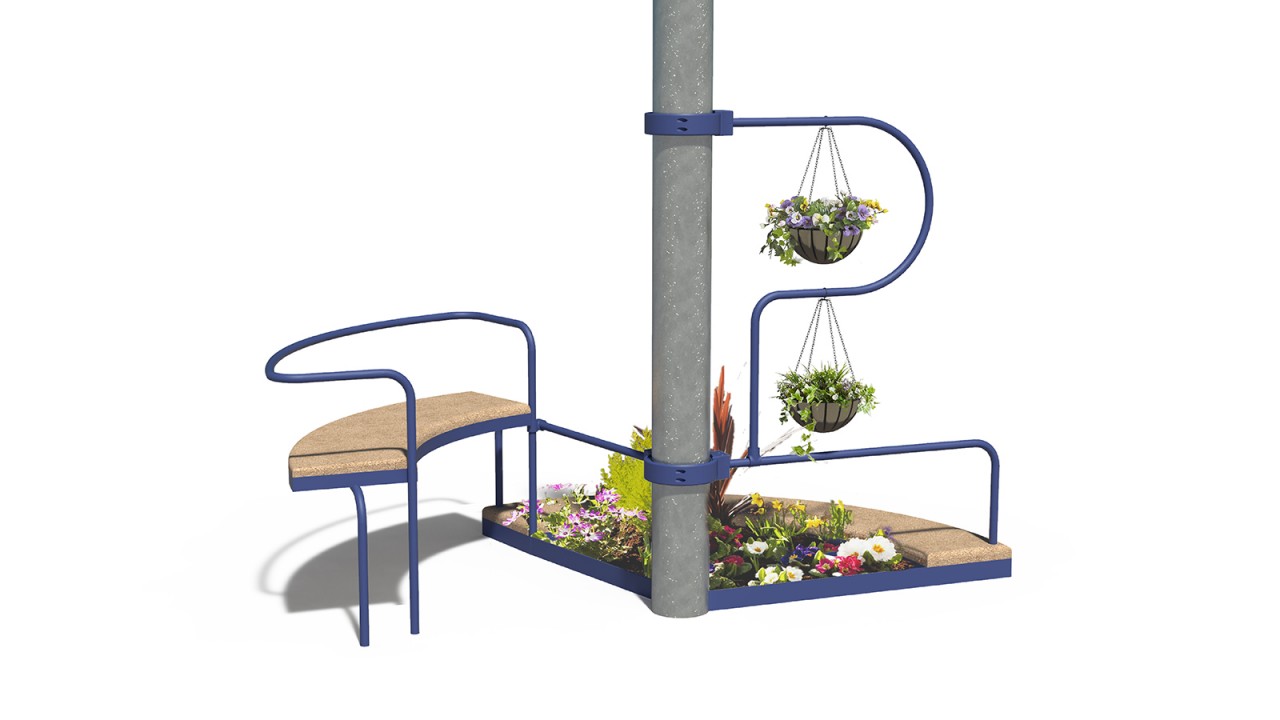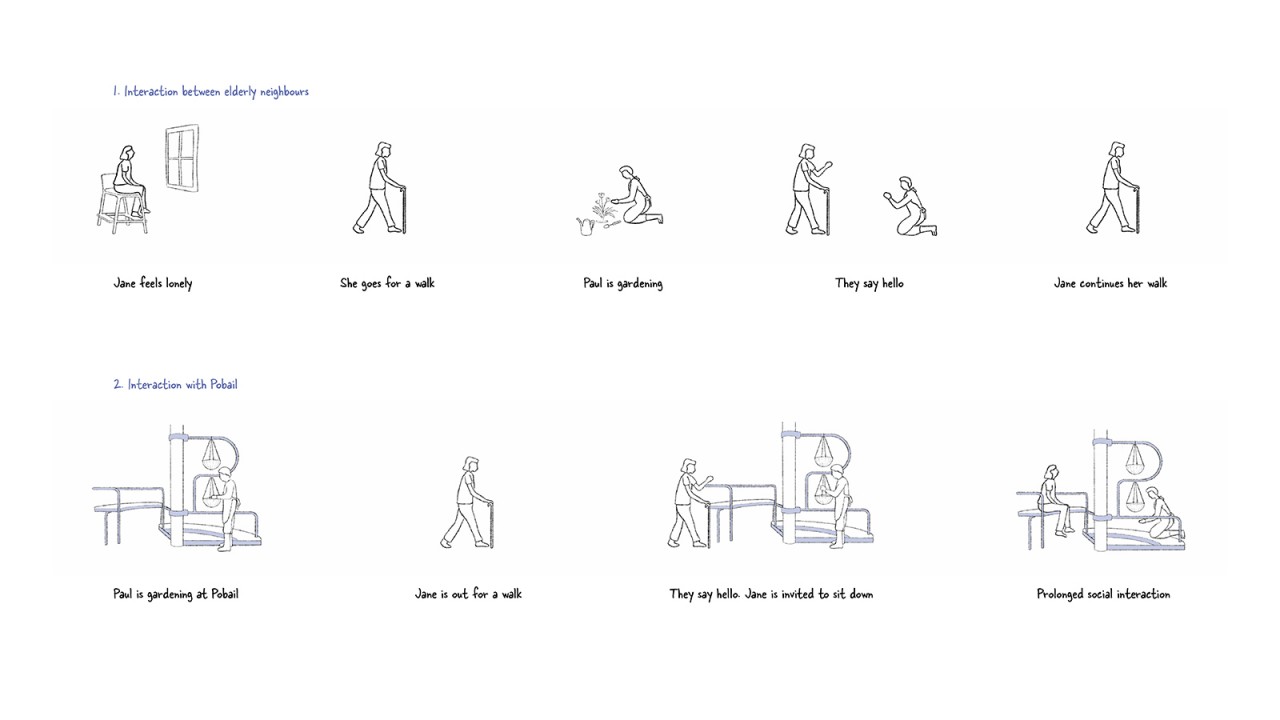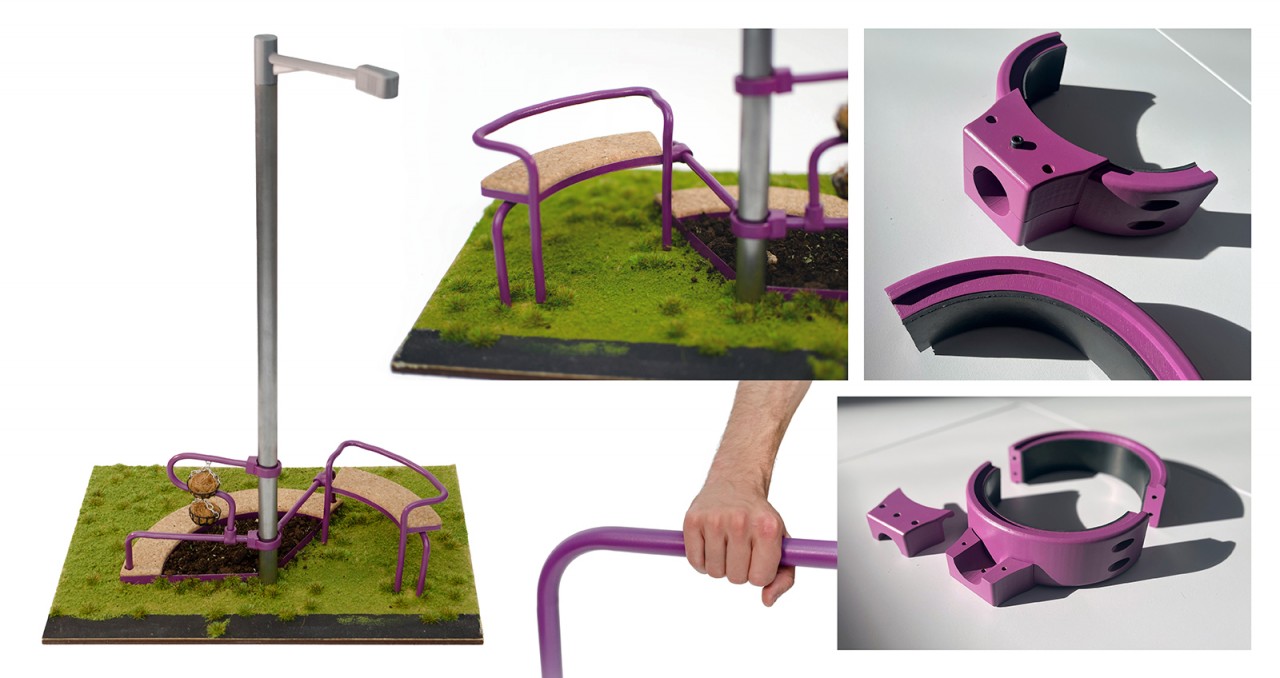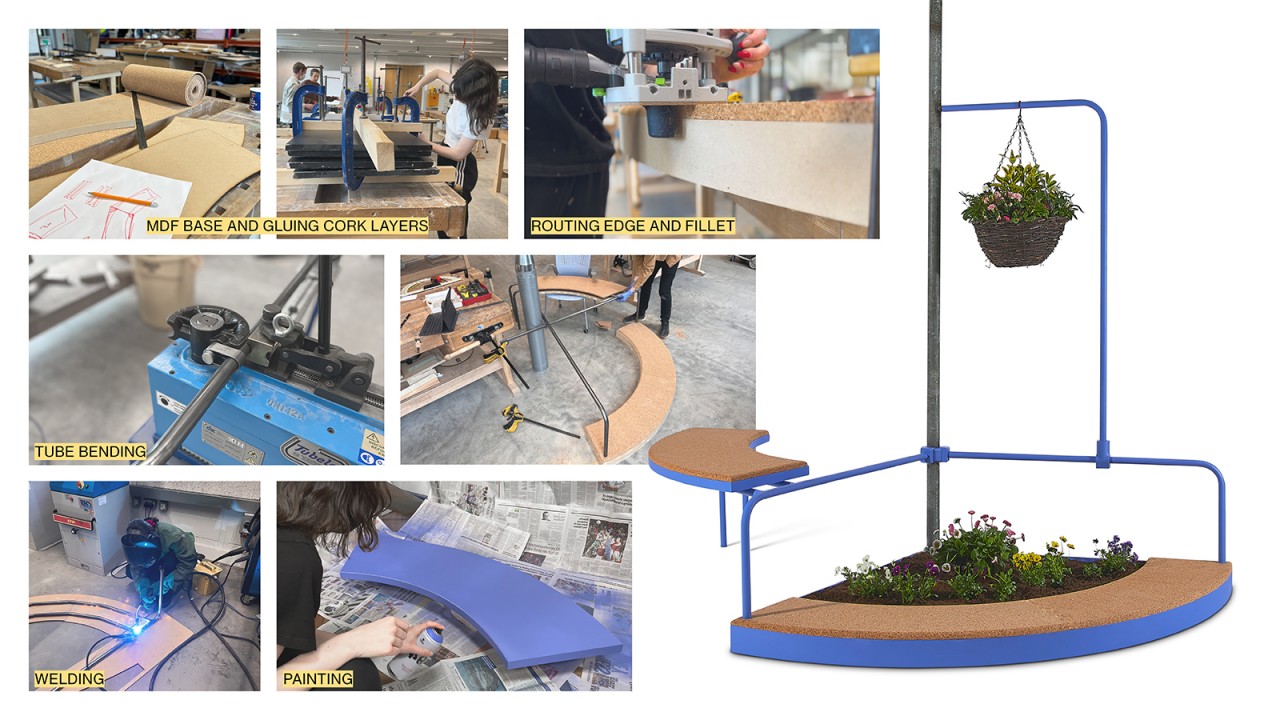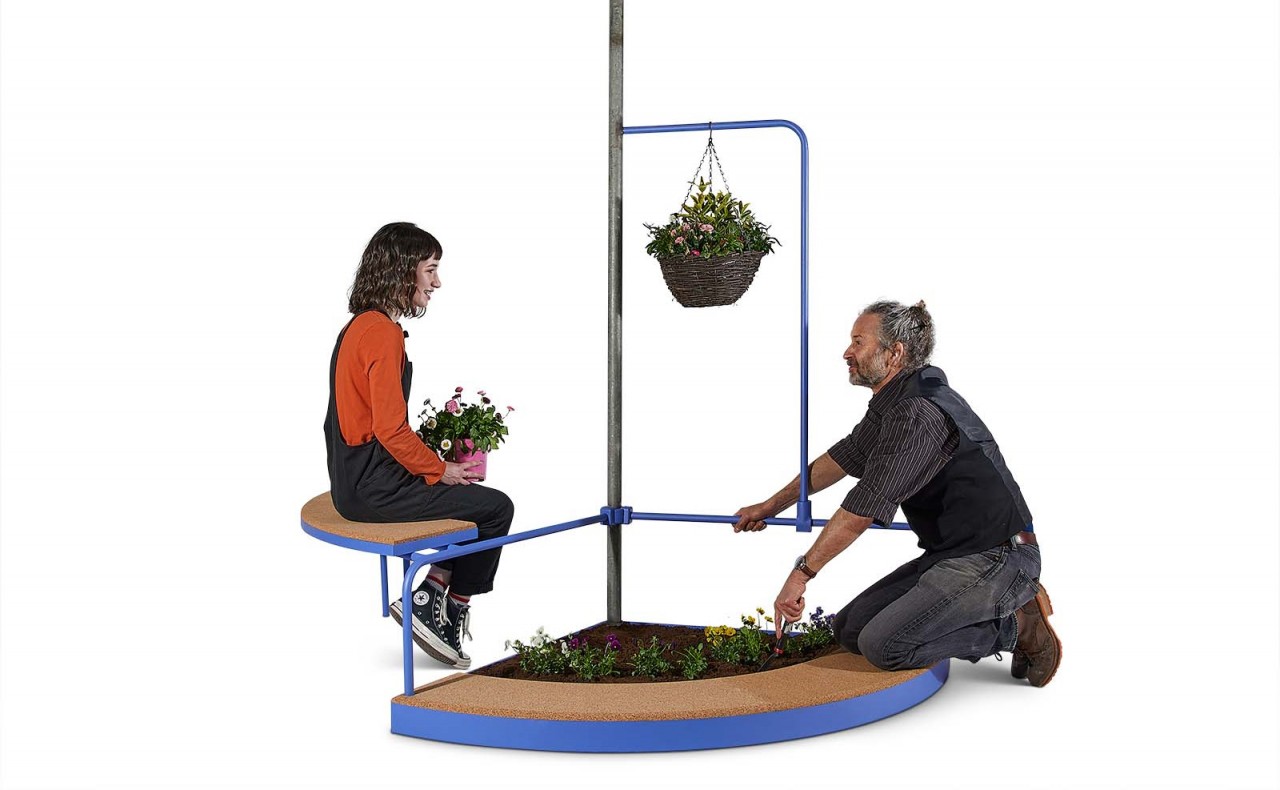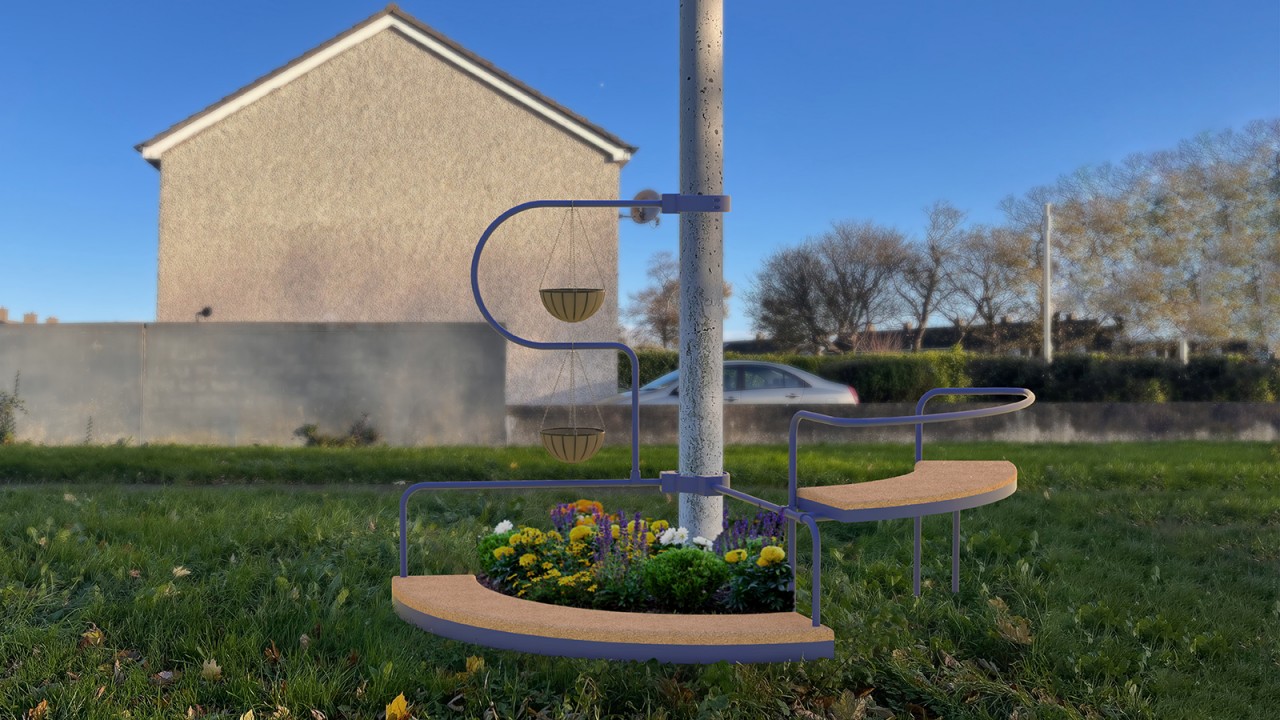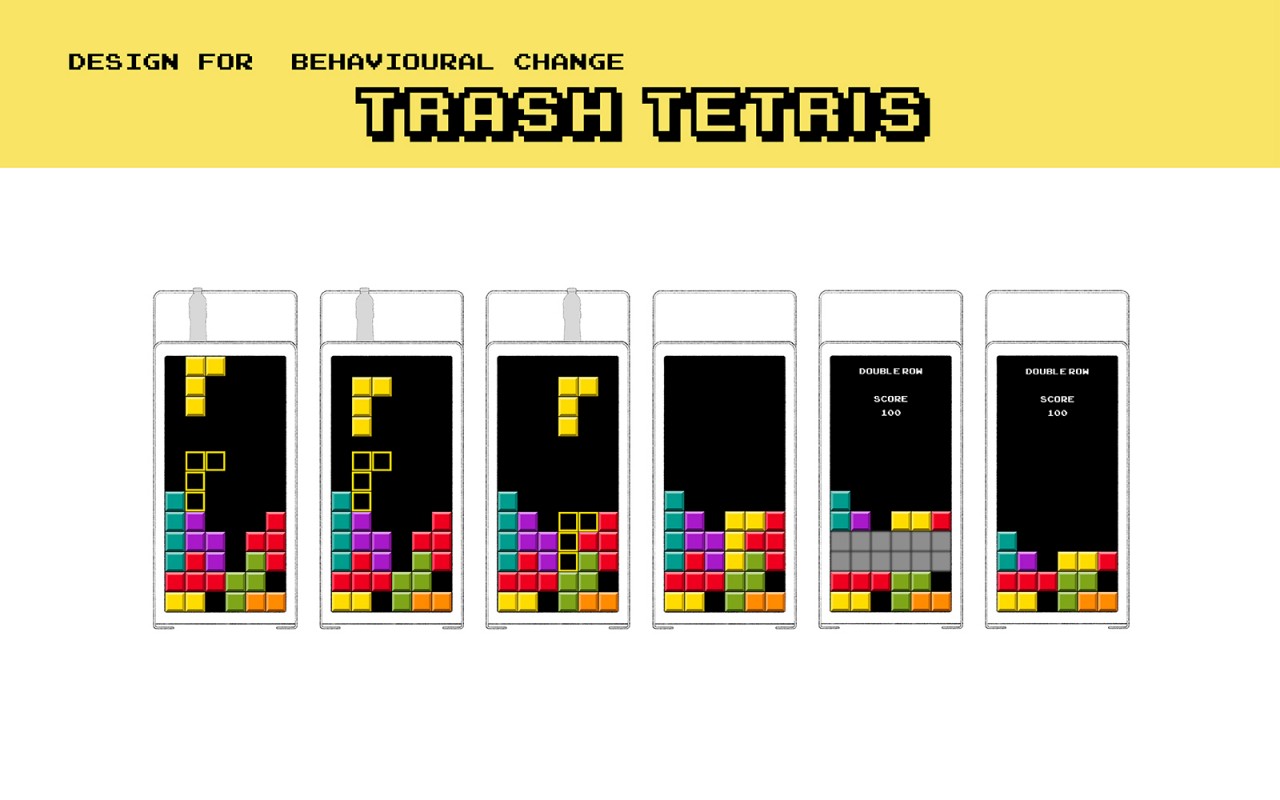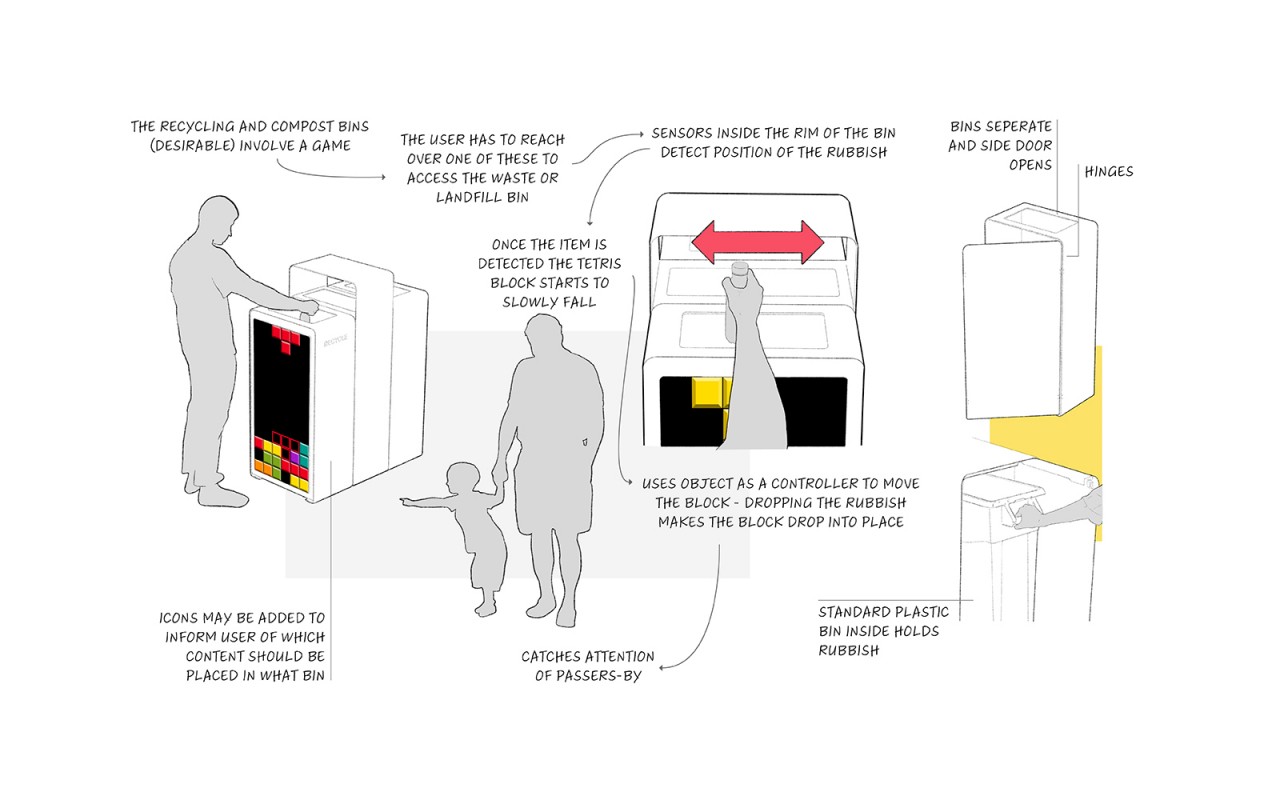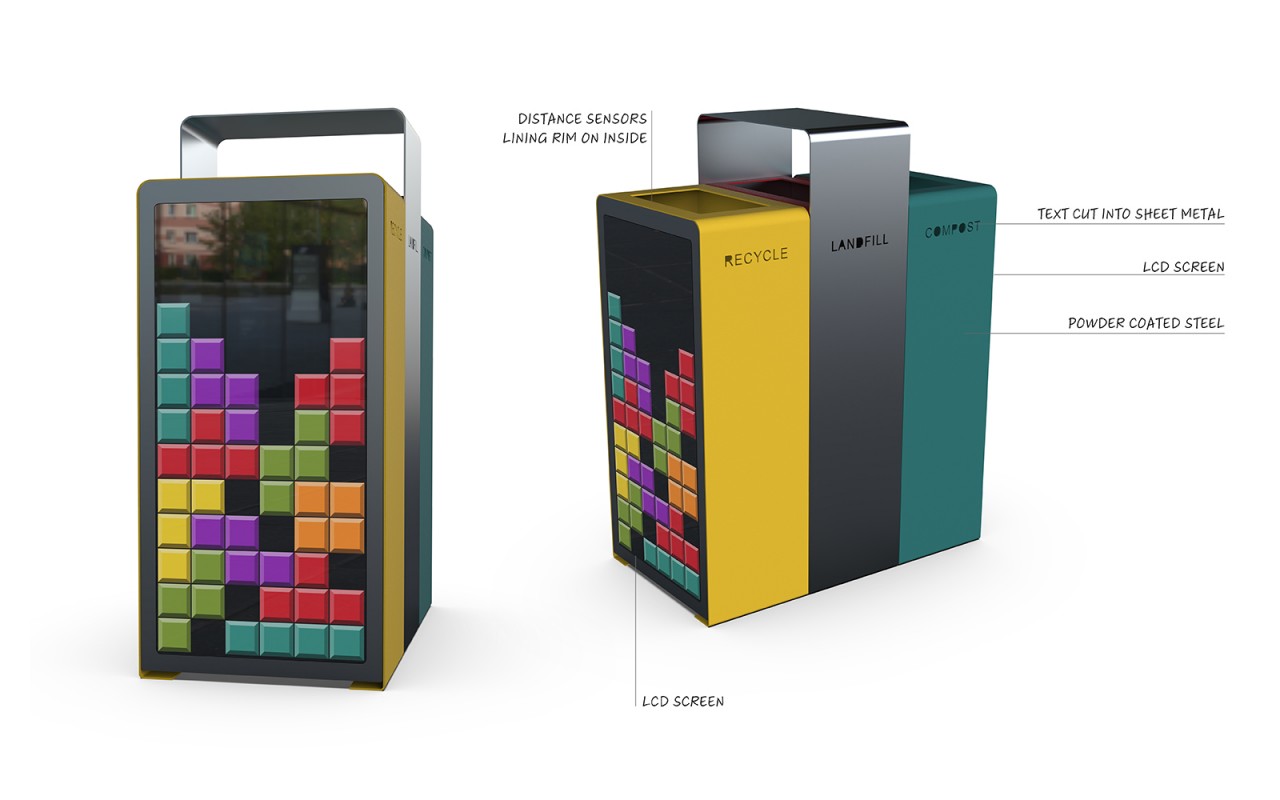Trash Tetris
“Something as simple as fun is the easiest way to change people’s behaviour for the better”
- The Fun Theory, Volkswagen
The misuse of recycling, compost, and waste bins in public spaces is a behaviour that works against creating a sustainable community. Dublin City Council’s previous attempts to move to on-street recycling bins has proven to be unsuccessful due to cross-contamination. In some parts of the country, contamination in recycling bins can be as high as 36%.
This poor behaviour is likely to be exhibited in public spaces by individuals with a lack of motivation or information, or a person in a rush and wanting to dispose of their rubbish quickly and without much thought. The impact of this behaviour includes excess steps in sorting of recycling or contaminated loads of recycling ending up in landfill.
Trash Tetris is a public bin designed to make interactions with the user into a game. It turns disposing of waste into something actively fun for users and provokes curiosity of passers-by.
The rubbish being recycled acts as the game controller. Sensors lining the rim of the bin detect the item and its position dictates where the Tetris block is dropped on the screen. To allow the Tetris block to drop slowly and give the user time to see its intended location, it must be held in position, giving the user time to confirm their action before throwing away the rubbish. This extended time acts slows the waste disposal process down, allowing the user to think twice before throwing their litter. The waste bin is labelled as ‘landfill’ to discourage its use, influencing the user to recycle or compost to reduce the feeling of guilt.
The form consists of bent steel sheets, which minimises the number of parts and fixtures required for assembly. The main housing for the bin will be powder coated, which doesn’t generate harmful solvents, unlike traditional wet paint.
A rent-instead-of-buy business model could be implemented. A leasing service is a more sustainable product service system, as once the customer is finished with the product, it can be returned to the supplier and redistributed for a second life.
Trash Tetris aims to provoke curiosity and encourages usage. By improving waste and recycling practices, we can reduce costs associated with sorting recycling and divert recyclable waste from landfill.
